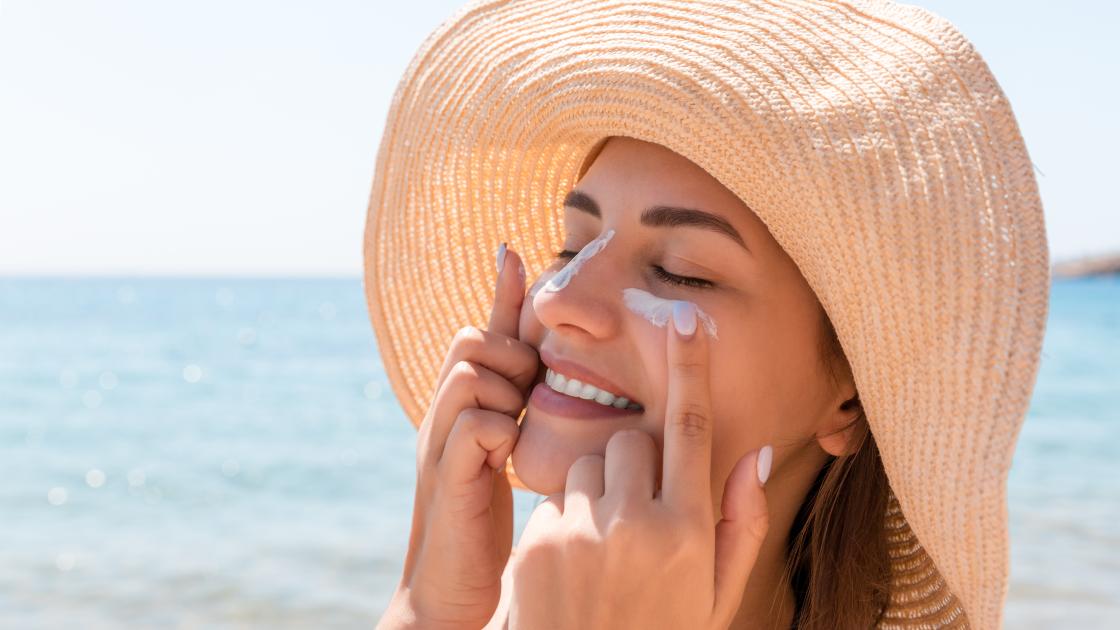
Choosing the right sunscreen
Wearing sunscreen outdoors throughout the year, and especially during the hot summer months, is an important lifestyle habit that can protect your skin and improve your health. When used as directed, sunscreen can reduce your risk of skin cancer—the most common type of cancer in the United States—and even help you avoid common age-related skin woes like wrinkles, fine lines and sunspots.
In the past few years, however, several sunscreen products from popular brands like Neutrogena®, Aveeno® and Coppertone® have been recalled over concerns that they contain trace amounts of a cancer-causing chemical called benzene. Sunscreen has also been criticized for its part in impacting coral reefs and other delicate ecosystems, though the science in this area is still limited and inconclusive. Understandably, this has caused some people to ask the question: Is sunscreen safe?
Here's the thing:
While experts agree that the benefits of regular sunscreen use outweigh any potential risks, not all sunscreens are created equal. Keep reading to learn about how you can find the safest and most effective sunscreen for you and your family.
Re-stocking your sunscreen supply?
Some things to consider before you buy
Mineral vs. chemical
Sunscreen comes in two forms: chemical or mineral. Chemical sunscreens contain chemicals—like avobenzone, oxybenzone, octocrylene, homosalate, octisalate and octinoxate—that act like sponges and absorb ultraviolet (UV) light from the sun. Mineral sunscreen contains minerals like zinc oxide or titanium dioxide that act as physical barriers and deflect UV light away from your skin.
Choosing between mineral vs. chemical sunscreen is largely a matter of personal preference, since both types are effective when used as directed. Some people might opt for mineral sunscreens if they have sensitive skin or are concerned about possible health effects of chemical sunscreens. The FDA’s current recommendations for sunscreen use in the prevention of skin cancer are based on up-to-date scientific evidence, and the science doesn’t show that any sunscreen ingredients currently available in the U.S. are harmful to human health.
Broad spectrum
Look for sunscreen that offers "broad spectrum" protection. This means it's been designed to protect you against the two main types of UV radiation, UVA (associated with wrinkles, skin aging and cancer) and UVB (sunburn).
SPF rating
SPF or "sun protection factor" tells you how well a sunscreen will protect you from the type of UV radiation that causes sunburn. A good rule of thumb? Choose a product with an SPF of at least 30—it's enough to block about 97% of harmful UVB.
Lotion vs. spray
When possible, choose a lotion- or cream-based sunscreen instead of spray-based sunscreen. Spray or aerosolized sunscreens can irritate the lungs if inhaled and are harder to ensure adequate coverage. If you choose to use a spray-based sunscreen, be sure to rub it in evenly and thoroughly.
3 more tips to help get the most out of your sunscreen
1. Watch for recalls. The U.S. Food and Drug Administration (FDA) regularly updates consumers about recalls, market withdrawals and safety alerts on a wide range of products, and reviewing the safety, effectiveness and quality of sunscreens is one of the FDA’s responsibilities. Check their website to stay up-to-date on sunscreen recalls and to make sure your products are good to go.
2. Be aware of the expiration date. Most sunscreens have a shelf life of about three years. It's important not to use a sunscreen product once it's expired, since it may no longer offer effective protection. Note: The FDA doesn't require manufacturers to print expiration dates on sunscreen bottles, so yours may not have one. If so, write the date of purchase in permanent marker on the bottle. When in doubt, throw it out. Also, avoid leaving sunscreen containers under direct sunlight, or in a hot environment such as inside of the car, as this will accelerate the degradation of the sunscreen ingredients.
3. Wear sunscreen properly. Even the safest sunscreen won't help you if you're not using it correctly. Here are some sunscreen how-tos from our dermatology team.
- Apply sunscreen about 15 minutes before going outside. This allows sufficient time for your skin to absorb the product.
- Be sure to use enough—most adults need about 1 ounce total for full body use—and use it on all exposed skin. Don't forget areas like your ears, neck and feet!
- Reapply sunscreen every two hours, or after swimming or sweating.
Do you have questions about skin health?
If you live in southern Illinois and would like to meet with a health care provider who can help you improve the appearance and health of your skin, find a doctor today at SIU Medicine.




